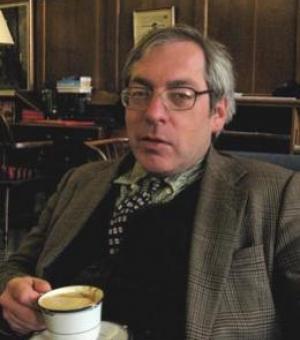Online Lecture
Plotinus and the Gnostics.
April 12, 2022
Lecture will take place on Zoom
7-9pm Athens & 6-8pm Alexandria
6-8pm Paris
5-7pm Oxford
12-2pm New York
Professor Mark Edwards’ talk will exceptionally take place at
9pm Athens, 8pm Alexandria & Paris, 7pm Oxford, 2pm New York.
Abstract
Enneads II.9, the 33rd of Plotinus’ treatises in chronological order, was given the title “Against the Gnostics” by Porphyry, who also informs us at Life of Plotinus 16 that the Gnostics were heretical Christians. Plotinus himself describes them as former friends (perhaps fellow-pupils of his Alexandrian teacher Ammonius Saccas) and treats them as deviant Platonists without any reference to Christianity. In this paper, I shall review attempts to identify the Gnostics with one of the groups to whom Christian heresiologists give that name, and will also consider their possible indebtedness to Numenius of Apamea. I shall note some affinities between the polemic of Plotinus and that of Celsus, which is overtly directed against the Christians. Drawing on recent work by Gerard Bechtle, Tuomas Rasimus and the later John Turner, I shall suggest that the thought of the “Gnostics”, including their use and possible creation of the noetic triad of being, life and mind, emerges from a common ferment of speculation in the mid-second century, in which Gnostics, catholic Christians and Platonists all participate without a clear sense of being discrete intellectual communities. By the time of Plotinus, Alexandrian Christians had already drawn sharp lines between their creed and those of both Christians and Gnostics (notwithstanding the profound respect for Plato that is evinced by both Clement and Origen); in Plotinus we see the beginnings of a similar enterprise among the Platonists, which is carried to completion (with reference to both Numenius and Christianity) in Porphyry’s Life of Plotinus.

Mark Edwards
(University of Oxford)
Mark J. Edwards has been Tutor in Theology at Christ Church, Oxford, and University Lecturer/Associate Professor in Patristics in the Faculty of Theology and Religion in the University of Oxford since 1993. Since 2014, he has held the title of Professor of Early Christian Studies. His books include Origen against Plato (2002), Catholicity and Heresy in the Early Church (2009), Image, Word and God in the Early Christian Centuries (2012), Religions of the Constantinian Empire (2015), and Aristotle and Early Christian Thought (2019).
